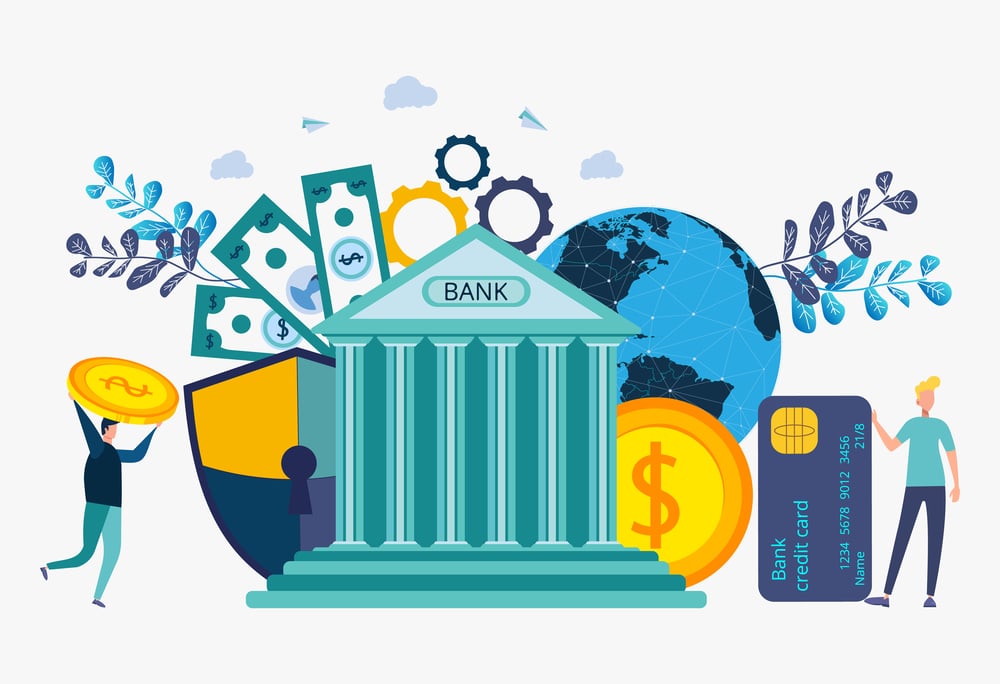Navigating Finances: How To Choose The Best Canadian Bank For Newcomers

Initiating your journey to a new country requires careful consideration of the financial aspects of your life. It is, thus, imperative for you to study and find the best banks in Canada that align with your financial needs. The country’s robust banking sector offers customised services from reputable institutions, including the ‘Big Five’—Scotiabank, BMO, CIBC, TD Canada Trust, and RBC. Additionally, explore alternatives like HSBC Canada and the National Bank of Canada.
Scotiabank
The Scotiabank StartRight Program stands out by allowing you to open an account before arriving in Canada, accompanied by unlimited no-fee international money transfers. Newcomers enjoy the first year of free banking with Scotiabank, along with a range of products and services designed specifically for their needs.
BMO
As Canada’s first bank established over 200 years ago, BMO has a wealth of experience in serving newcomers. With an incentive program for those who arrived within the last five years, BMO offers customised products and services to help newcomers settle and kickstart their new lives in Canada.
CIBC
Formed through a merger in 1961, CIBC has modernised its banking platforms to enhance client experiences. With a chequing account that adapts to newcomers’ preferences, an extensive ATM network, and online and mobile banking, CIBC simplifies the financial transition for newcomers.
RBC
As the largest banking institution in Canada, RBC tailors its newcomer banking packages based on the stage of transition—whether preparing to move, just arriving, or settling into Canadian life.
HSBC Canada
Part of the global HSBC network, HSBC Canada’s 130+ branches in major cities offer the “Global View” service, simplifying access and transfers between personal HSBC accounts worldwide.
TD Canada Trust
Known for its widespread presence across Canada and the United States, TD Canada Trust is a popular choice for newcomers. With numerous branches and ATMs, an efficient online platform, and newcomer incentives, TD makes banking convenient for newcomers.
National Bank of Canada
As the sixth-largest commercial bank, the National Bank of Canada provides specialised services to newcomers. However, its branch presence may be more concentrated in major urban centers, especially in Quebec.
How to Choose the Best Bank in Canada
When deciding on the best Canadian banks for you, consider several factors:
- Banking Fees: Understand the fees associated with checking accounts, ranging from $5 to $30 per month. Some banks may refund fees with a minimum balance.
- Cheques: Cheques remain relevant in Canada; be aware of potential costs associated with obtaining a chequebook.
- ATM Charges: Be mindful of ATM fees, especially when using other banks’ ATMs or privately owned ATMs.
- Debit Cards: Evaluate the usage of debit cards, which are widely accepted in Canada.
- Interac e-transfer: Familiarize yourself with the Interac e-transfer system for online money transfers.
- International Money Transfers: Consider options like Wise and CurrencyFair for cost-effective international money transfers.
Best Credit Cards in Canada
Building a good credit history is essential, and choosing the right credit card is an important step. Consider factors such as
- Annual Fees: Some cards are free initially, but be aware of potential fees later on.
- Rewards and Perks: Explore credit cards with cashback, points, or travel rewards, balancing benefits against annual fees.
- Credit Building: Using a credit card responsibly aids in building a positive credit history.
- Fraud Protection: Inquire about the bank’s fraud protection policies for credit cards.
Additional Considerations
- International Cards: Check with your local bank about the compatibility of international cards in Canada.
- Cash Advances: Avoid costly cash advances on foreign credit cards.
- Understanding Terminology: Familiarize yourself with Canadian banking terms, as terminologies like “lodgement” are not commonly used.
Conclusion
The best Canadian bank for you depends on your specific needs and preferences. Research thoroughly fees, services, and credit card offerings to ensure a seamless and cost-effective financial transition as you begin your journey in Canada.


